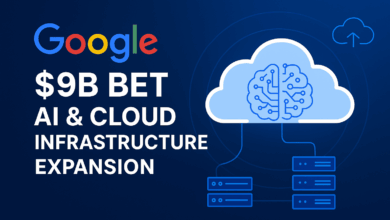AI & Hyper-Personalization Remaking Business Strategy

Artificial intelligence (AI) in the current digital era is not an add-on but the prime driving force transforming business strategies across the world. Its most powerful use is hyper-personalization, a high-level practice that integrates real-time information, machine learning, and predictive analytics to deliver consumer experiences that are extremely customized to every person.
Why Hyper-Personalization Matters
Unlike traditional personalization that relies heavily on demographic segmentation, hyper-personalization is designed on an individual basis. For instance, online retailers are now able to suggest products that are specifically tailored for every customer’s interests and purchase history. Thus, businesses are not just increasing customer engagement but also generating stronger loyalty.
The Role of AI in Driving Change
With its ability to process enormous amounts of data within seconds, AI is the basis for hyper-personalization. Companies are now able to:
- Track in-real-time customer behavior,
- Send dynamic, personalized marketing messages,
- Create seamless end-to-end customer experiences.
Moreover, advances in Natural Language Processing (NLP) and predictive analytics enable companies to provide not only correct but seemingly human-like interactions regardless of whether they are automated.

Influence on Modern Business Strategy
Firms adopting hyper-personalization have a precise competitive advantage. The shift from mass marketing towards data-driven precision campaigns has been proven to lift ROI, build brand loyalty, and propel product innovation.
For example, the banking sector has only recently incorporated AI in an effort to offer personalized financial advice to all clients depending on the risk profile of each client, with medical professionals relying on AI in order to give better treatment through patient history.
Challenges Along the Way
While opportunities are created by hyper-personalization, there are challenges too. Data privacy, regulatory compliance, and transparency in algorithms remain a persistent concern. What that means is that businesses must balance doing good and innovating without spoiling the trust of consumers in an attempt to deliver personalization.
The Future of Business Strategy
In the future, one can clearly see AI and hyper-personalization will continue rewriting the business world. Those companies that embrace these technologies early will be well placed to thrive, while those that ignore them will get left behind.
Last but not least, the focus of business strategy today is changing—away from what companies can offer, toward how companies can serve each customer uniquely at a moment. Driven by AI and hyper-personalization, the future of business will be more personal, more relevant, and emphatically more sustainable.



